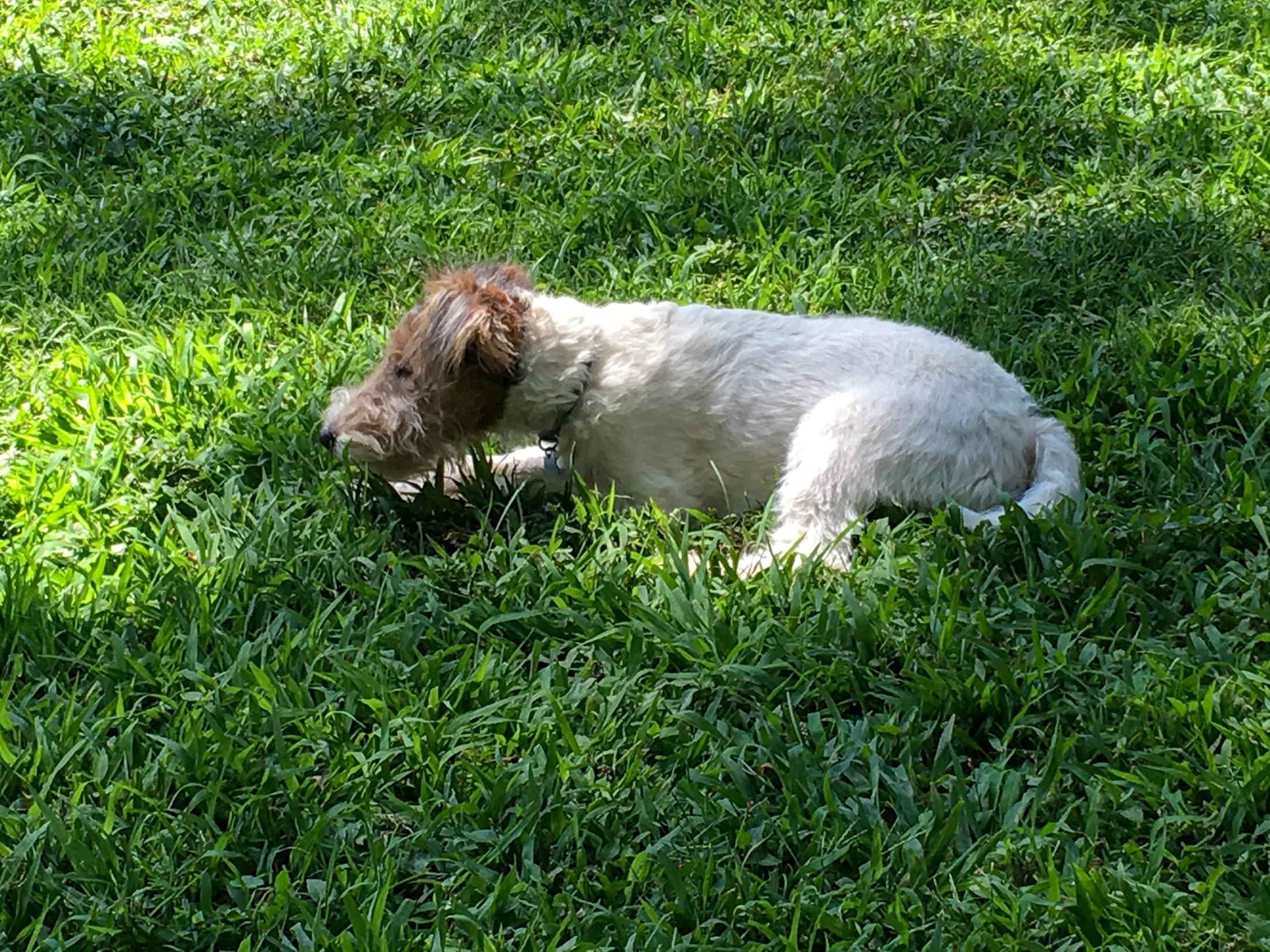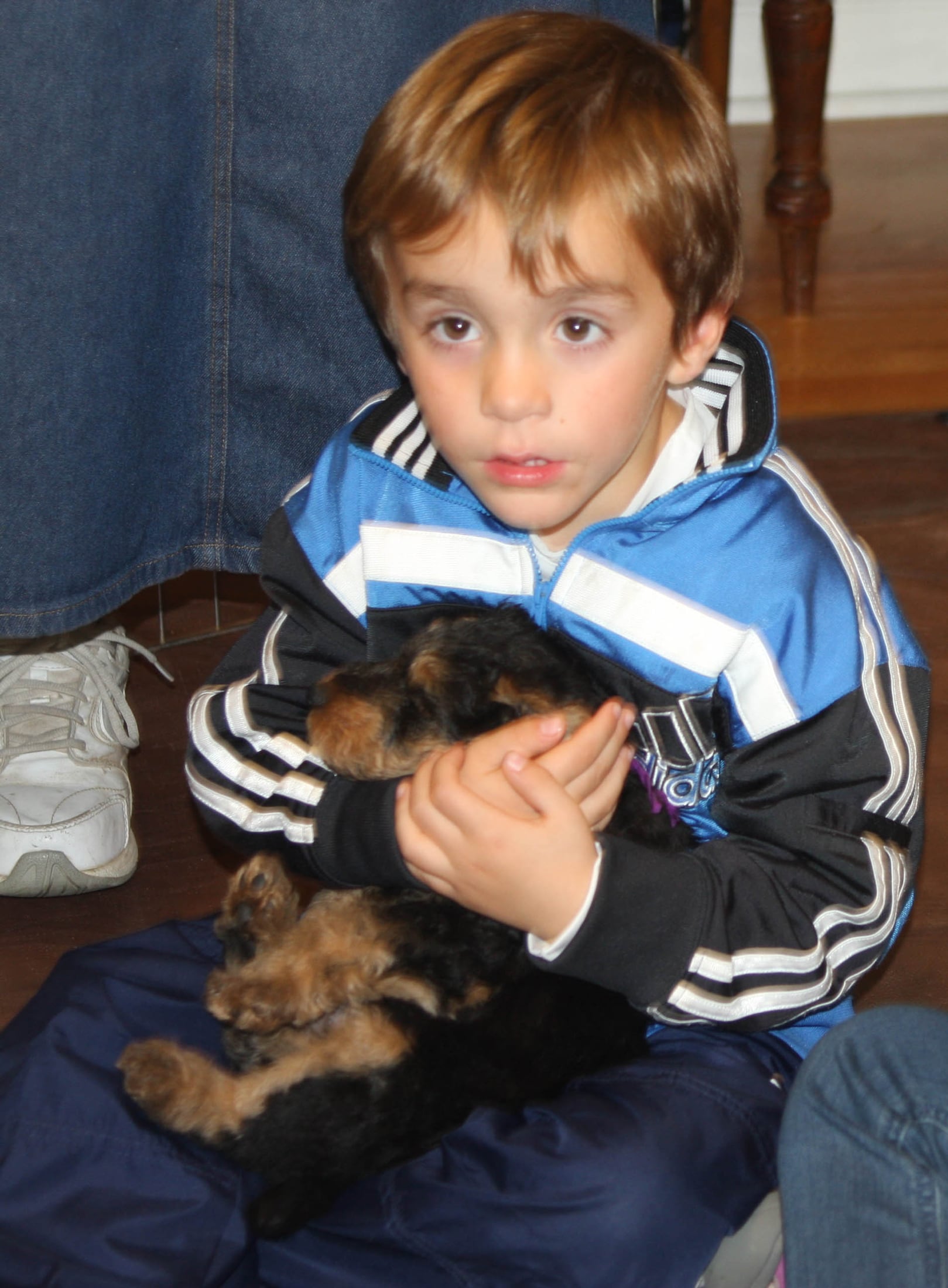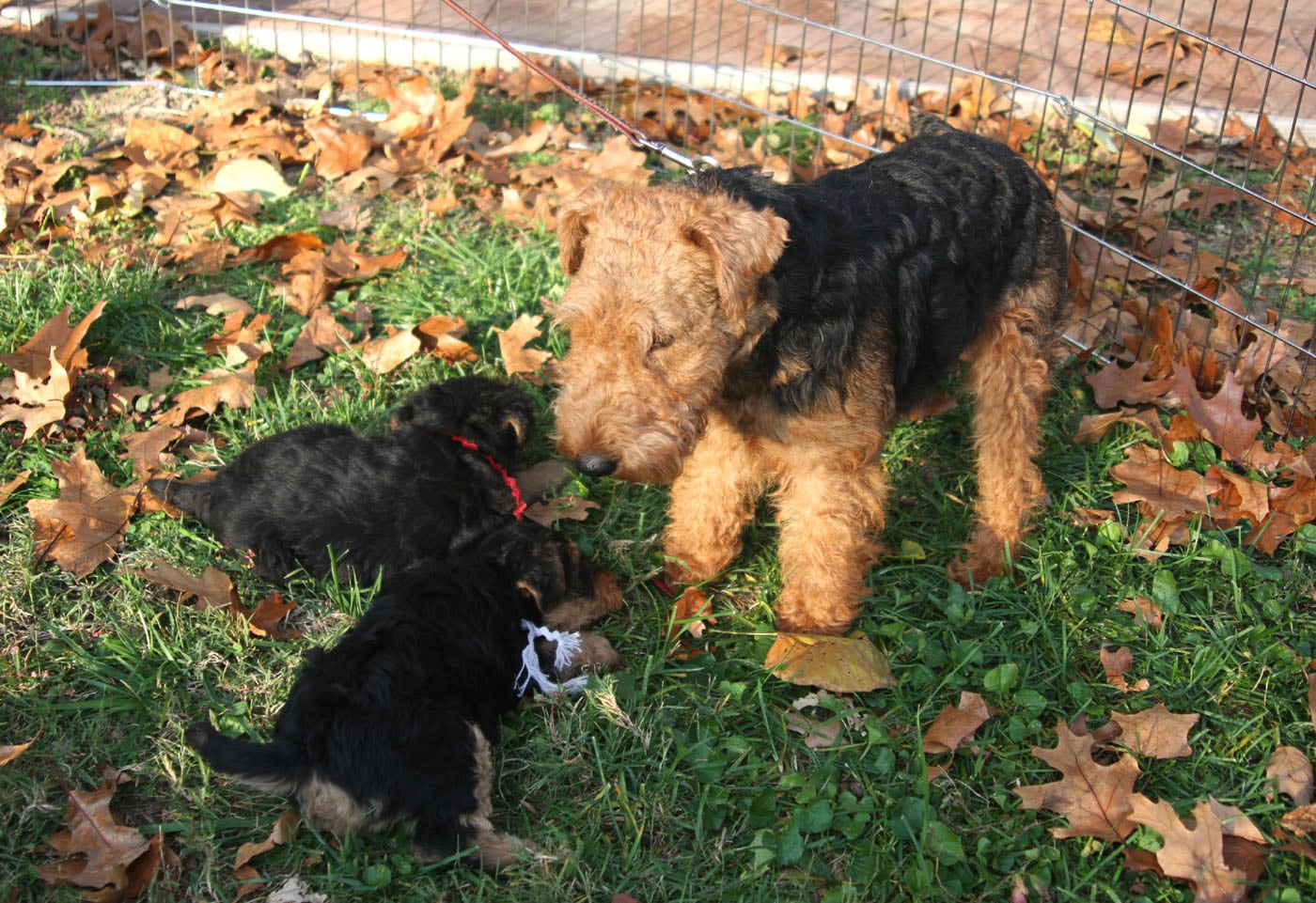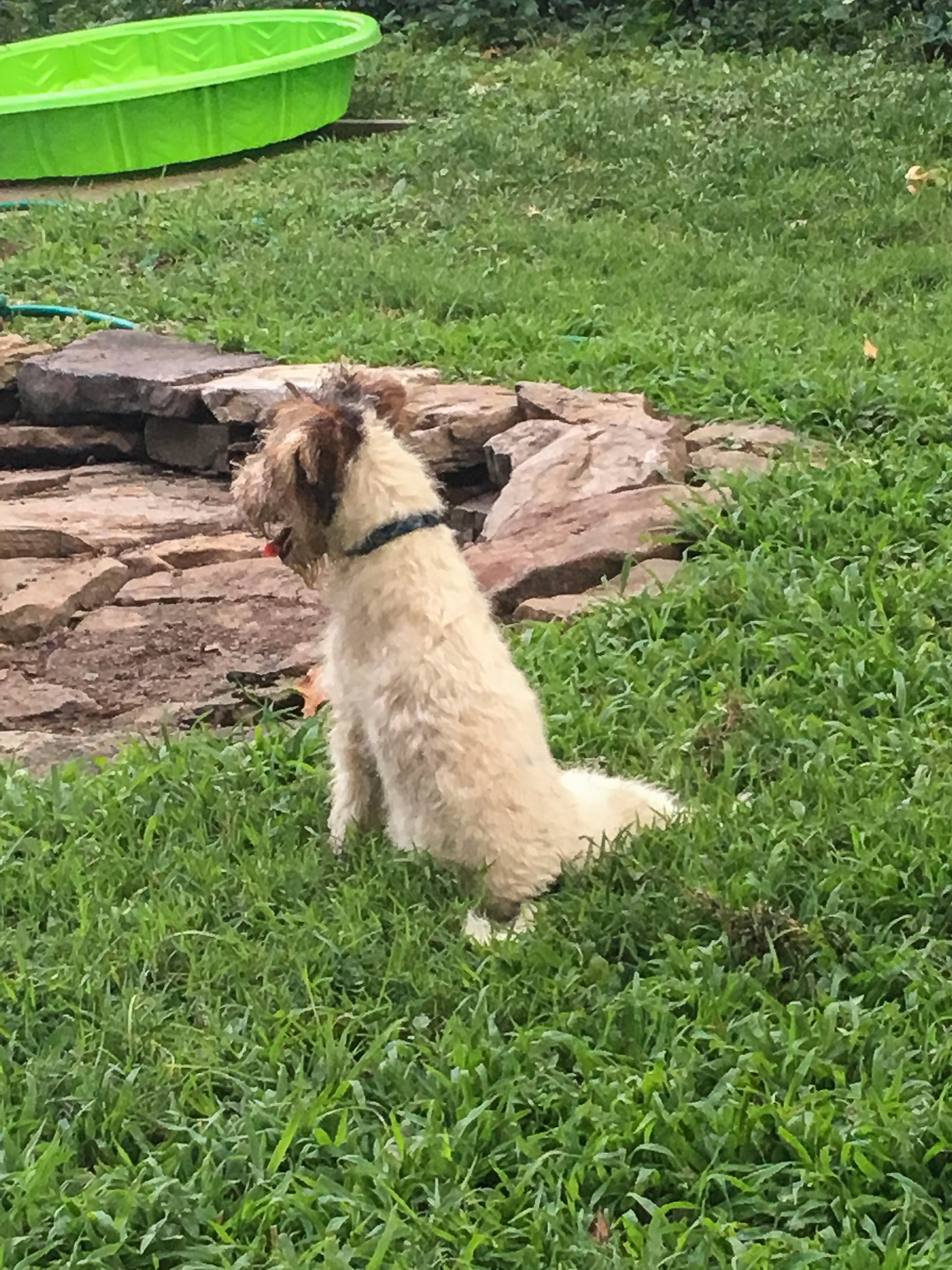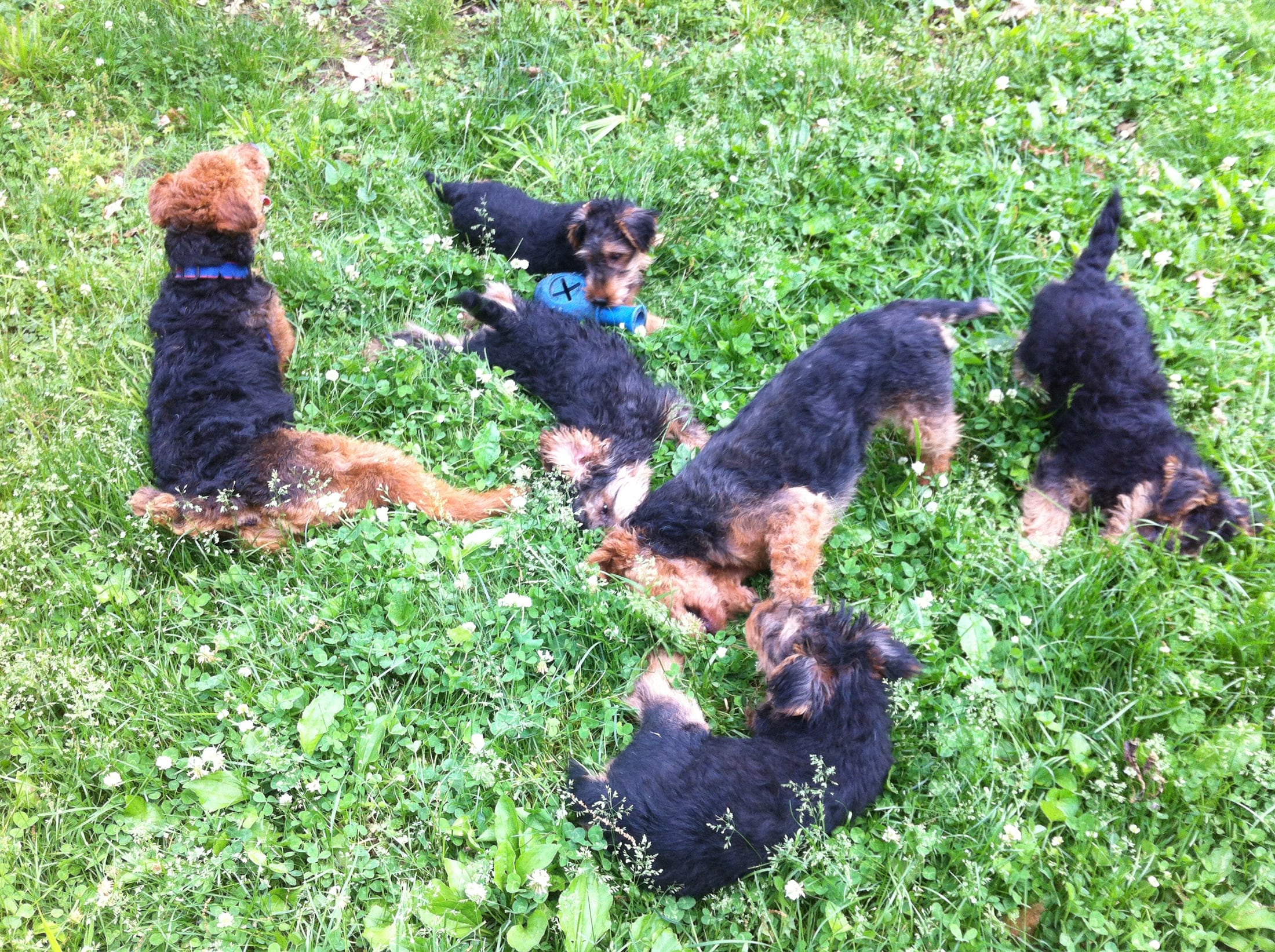This is the final opportunity to set your puppy on a path that will not require back-tracking and extra work to change Puppy’s world view.
For a puppy who has had a smooth start
- Continue to introduce puppy to a wide variety of sights, sounds, smells, objects, surfaces, people, dogs, other animals, experiences, situations using positive association
- Continue with puppy kindergarten class or a similar process of careful exposures
- Continue to help puppy learn to expect the unexpected
- Continue training important behaviors for your situation
- Continue teaching fun tricks to keep skills sharp and interest high
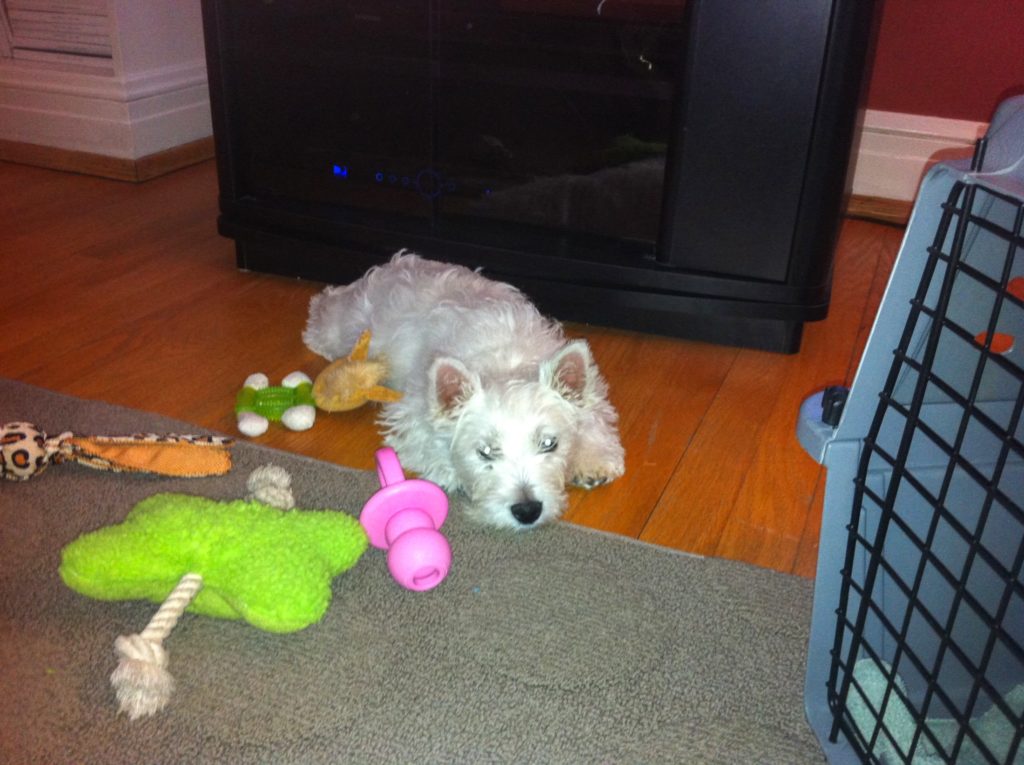
For a puppy who has had a rough start
- Introduce puppy to a wide variety of sights, sounds, smells, objects, surfaces, people, dogs, other animals, experiences, situations using positive association
- Begin a puppy kindergarten class or a similar process of careful exposures
- Help puppy learn to expect the unexpected
- Wait for the dog to sit (or any behavior of your choice) before giving attention
- Introduce practical handling experiences: ears, feet, gentle restraint
- Limit the dog’s options by using a crate or pen or tether when not actively training
- Teach the dog to love its crate or pen and dash inside when cued
- Teach the dog anticipatory cues that mean they are about to be picked up or have the leash put on
- Begin clicker training
- List important behaviors for your situation and start them first
